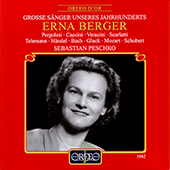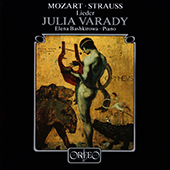
Josef Mysliveček (1737 - 1781)
Josef Mysliveček was born the son of a miller in the vicinity of Prague. After rather unsuccessful university studies in Prague, he studied the violin, organ and counterpoint with Czech composers and in 1760 published his ‘Opus 1’, a set of six symphonies. Their success strengthened his resolve to compose and in 1763 he went to Venice to perfect his knowledge of composing operas and other vocal genres. His first opera Medea followed in 1764, and its enormous success brought him several opera commissions. The thirty or so operas Mysliveček wrote during his life were commissioned by the most important Italian opera houses (in Naples, Rome, Milan, Bologna and Florence) as well as by German courts (Munich in particular). During the period 1760–1780, Josef Mysliveček was the most distinguished composer of Italian opera seria in all of Europe.
In his oratorios, as in most of his operas, Mysliveček preferred librettos by Pietro Metastasio. In 1775 the Elector of Bavaria invited Mysliveček to Munich, where the composer performed his opera Ezio during the Carnival season and during Lent his oratorio Abramo e Isacco (using Metastasio’s libretto Isacco figura del Redentore), both with astonishing success.
At this time, Mysliveček became seriously ill and mistreatment in hospital led to severe facial disfigurement, leading his friend and great admirer Wolfgang Amadeus Mozart to state the following in a letter dated October 11, 1777: “If it were not for his face, he would be altogether his old self, for he remains full of fire, spirit and life … all Munich is talking about his oratorio Abramo e Isacco, which he has produced here.”
We do not know when Josef Mysliveček encountered Metastasio’s passion libretto and even the composition and premiere dates of Mysliveček’s La passione di Giesù Christo are not certain. It seems to have been written between 1770 and 1773 and first performed in Florence or Bologna between 1773 and 1777.
RELATED MEDIA:
Classical Discoveries – #12: EASTER CLASSICS beyond J. S. Bach


















